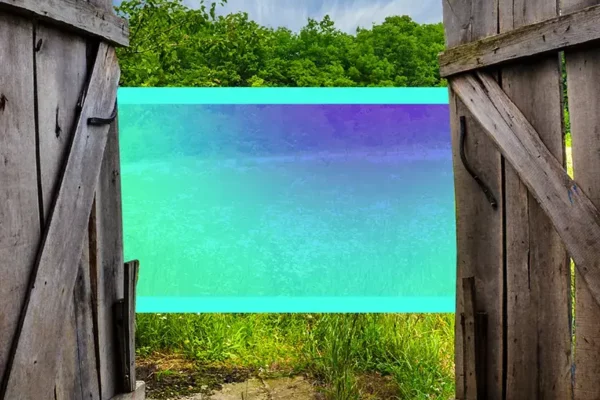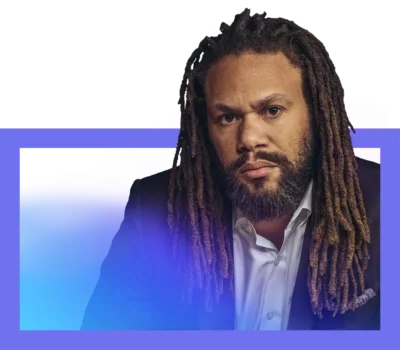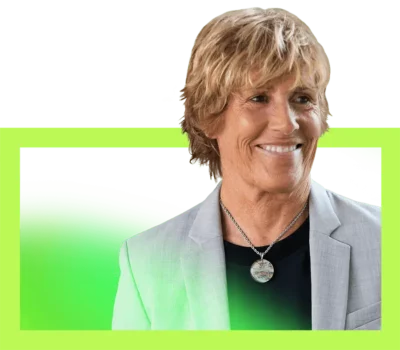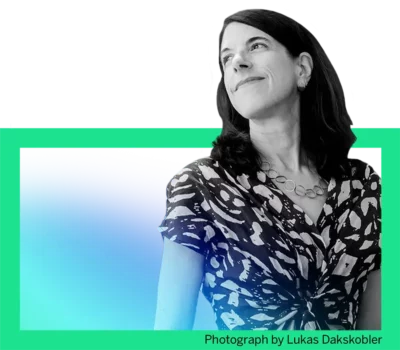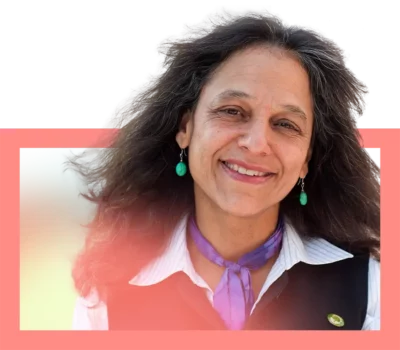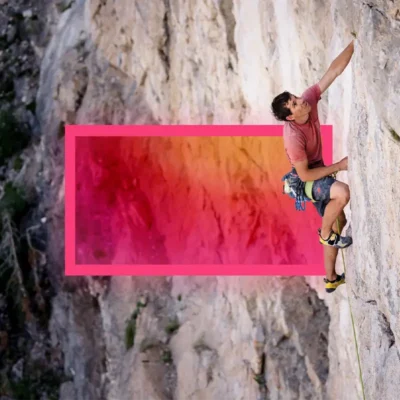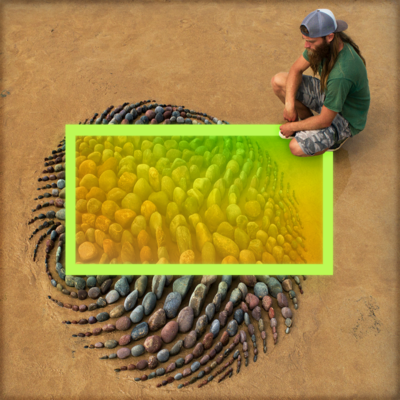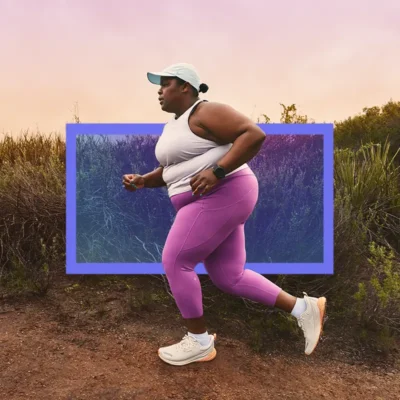ROHAN GUNATILLAKE: Hello everyone. Rohan here, your host of Meditative Story. Deron, Mary Beth, and the team are working with new storytellers for our upcoming season, which begins very soon. In the meantime, we always find taking a moment to look back at some of the richest experiences of the season we’re bringing to a close, gives us a chance to hold onto those moments before we move on.
I think you’re going to love this between-season content we’ve curated, and as always, please reach out at [email protected] if you have any ideas about storytellers or anything you’d like to share with us.
Please take a few moments to settle in. Find a position where you’re really comfortable.
I don’t need to remind you of the uncertainty, and anxiety, and in some cases profound difficulty we’ve all been through over the last year and change. But I think we’ve all felt a shift in recent weeks. After so much hardness, something lighter seems to be creeping into the frame. All our problems haven’t magically vanished – but lately I’ve felt a level of hope and optimism that’s refreshing.
I’m drawn to short scenes from our past season because they speak, in a way, to that change I’m feeling. They’re stories of emerging, of reawakening in some cases. Stories of new chapters beginning. And I really appreciate reminders of what that looks like, and feels like.
We’ll start with a Meditative Story from Diana Nyad, the author and record-setting long-distance swimmer. In her Meditative Story – 57 in the feed – Diana describes an unlikely meeting that leads to an unlikely conversation, which in turn changes the way she goes about approaching every moment of her life.
The body relaxed. The body breathing. Your senses open. Your mind open. Meeting the world.
DIANA NYAD: I’m stunned. His breathing, through that respirator tube, isn’t so much a sip as it is a gulp. Christopher Reeve is backstage at a fundraiser event for stem cell research. It wasn’t so long ago that he was larger-than-life. Superman. The epitome of strength and virility. It was a cruel moment, his fall from his horse. In a heartbeat, Christopher Reeve became a quadriplegic.
His gulps from that tube gave him a stream of air to get out maybe five or six labored words. Chris loves athletes and their stories. He recognizes that I’ve been retired from world-class sports for decades at this point, but he still asks me: “What was the essence of your success as a swimmer?”
A make-up artist comes over to powder Chris’s face. How can I pretend not to be shaken, to witness the life he now lives, strapped into this large contraption, his only movement possible by his eyes, his mouth?
Come on. Snap out of it. He’s curious. He’s asked you something. Get it together.
“Well, Chris, as a teenager I came to my last pool race, after getting up at 4:30 every morning for eight years. I didn’t yet know my athletic talent lay out in the ocean. This race was to qualify for the Olympic Trials. And I remember it as if it were yesterday. I was walking down the pool deck in a daze.
“Chris, I can share with you, my chances that night were close to zero, even after eight years of working hard and believing. My buddy Suzanne shook me. She said, ‘What in the world are you thinking about? You’re in a fog!’
“Suzanne grabbed my shoulders, put her face within inches of mine, and she barked at me. ‘Get up to those starting blocks. Blast off with every ounce of what drives you. And when you touch that wall, don’t look around to see where you finished. Close your eyes, close your fists, and say it out loud: ‘I couldn’t have done it a fingernail faster.’
“I’m telling you, Chris, I remember Suzanne’s every word, even all these decades later. She told me, ‘I guarantee you, you do it that way, you say it, you mean it, you will walk out of here with no regrets, no matter what happens.’
“So, Chris, that’s the way I swam that race, the last race of my youth. And you know what? I didn’t make it. But I walked off the pool deck that night with a philosophy for life. I literally stopped, looked up to the night sky, and said to myself: ‘Every day of your life, no matter what you do, do it so you can’t do it a fingernail better. No regrets.’”
Chris stares at me pointedly. And he presses me: “So, you promised yourself a long time ago to live every day so you couldn’t live it a fingernail better. Have you kept that promise?”
He stops me cold. I really don’t have to think about it. I say one word to Chris: “Hardly.”
Chris’s handlers come, and he’s off for his appearance. As he’s wheeled away, I can’t help but stare after him – in part because it hits me that in a nano-second any one of us could lose all that we so easily take for granted. The other thing is this. Here I am face-to-face with someone I’ve never met before, for only a scant few minutes, yet he unabashedly calls into question how I’m going about my life.
GUNATILLAKE: Not a fingernail better. Sometimes it’s a simple but vivid notion like that, born of a random exchange, that lets us turn a page that needs turning.
Other times it’s something much more dramatic. In 2015 the ecologist Nalini Nadkarni suffered a terrible accident in the field, falling 50 feet from the top of the rainforest canopy to the forest floor. But this catastrophe that could have ended her life did something quite different. It invited a new life to begin in its place. After this, I do hope you’ll go listen, or re-listen, to the entirety of Nalini’s story, in episode 59.
NALINI NADKARNI: One day, sensing my mood, Erika says, “Mom, I think we need to do screams.”
“What are you talking about?”
“You, in the wheelchair, with me. We’re going to the park. And we’re going to scream our heads off at the trees.”
The next day, we wake up early and drive out to McLean Park. We are the lone car in the parking lot. The moist morning air shrouds the trees and us in a gentle mist. The alder trees on the pathway’s edge seem to lean toward us, to beckon. She wheels me out to an open area. I pause. I hesitate. Erica smiles at me, as if to give me permission. And then I scream as loud as I can – letting out all my frustrations.
After a few minutes of this, she changes gear. She instructs me to whisper each thing that I’m grateful for. I look at Erika as I whisper, and I realize something astonishing: Our roles have shifted. I’m not being the know-all mom that is caring for her little daughter. She is the one who knows how to care for me.
When forests suffer a disturbance, younger species of trees start to fulfill the roles the old trees used to play. The same is apparently true for me: My recovery demands that I allow people in my life to change their roles to balance for my new limitations.
And as it happens, the adjustment isn’t all that difficult for us to make. Because I’m not the linchpin. I never was. I’m expendable, in a certain way, and there’s a calmness that comes out of knowing I’m not the one holding it all up.
Perhaps this disturbance is an opportunity for me to consider other roles I might play in my life. Things I haven’t admitted out loud. I want to be spiritual. I want to create. Maybe never climbing another tree wouldn’t necessarily be a bad thing.
But if not Nalini the tree climber, the scientist, the provider mom, the doer, then who am I?
GUNATILLAKE: The question of who are we – we hear its echo throughout our lives. It doesn’t really go away, though the specific words sometimes change. For many of us, making sense of ourselves starts with understanding how to make sense of that question.
Franklin Leonard is the founder of The Black List, the influential annual survey of the best unproduced screenplays. His is the world of movies, and as movies tell us regularly, we figure out who we are through big, dramatic epiphanies. But as Franklin describes in episode 68, the path forward in real life is another story entirely.
FRANKLIN LEONARD: I spend a lot of that time renting movies – and flipping through books about movies – in the Barnes & Noble in Union Square. I love great films. And I love Kim’s Video in the East Village. It’s an old-school, independent video store where you can rent DVDs. Because this is back in the era when you’d rent DVDs. I hear a snowstorm is coming, so I duck into Kim’s and pick up three of my favorite films: Dr. Strangelove, Amadeus, and Being There.
I step out into the twilight with my DVDs under my arm. Brick buildings topped by water towers are outlined against the sky as it darkens. My breath turns to steam. It’s 14 degrees. I take two steps, and the first gust of wind hits me. It’s the start of a once-in-a-decade blizzard. People rush home from work, bundled up. By the time I get off the subway in Brooklyn and hurry back to the warmth of my building, the first snowflakes begin to fall. The radiator in my apartment clanks and burbles as I fire it up. I make popcorn, turn on the TV, and slip the first DVD into the player.
By the time the credits of the third film roll, it’s 3:30 a.m. I look out my bedroom window, and two or three feet of snow has fallen. My side street in Brooklyn is blanketed in deep drifts of white snow. The parked cars and street sign are nearly hidden from sight.
The last shot of Being There keeps rolling in my mind. Peter Sellers plays a simpleton gardener whose comments like, “There will be growth in the spring,” convince everyone he’s an economic genius. He becomes an advisor to the President, who then dies in office. At the funeral, the pallbearers are carrying the coffin, and they’re talking about Chauncey Gardener being their one and only chance to keep the Presidency in the next election. You’re of course thinking, oh, that won’t go well.
But then in the last shot, Peter Sellers wanders away from the funeral, through the snow on the ground, toward a lake.
And he walks on water.
The next day I buy a ticket to Los Angeles.
In the movie version of my life, I would have flown to L.A. and de-planed as a person re-born. I’d know exactly how to play to my deepest talents and live every moment of every day of my life realizing the creative destiny I was meant for.
But real life doesn’t work that way. Very few people actually make huge dramatic changes all at once. In the absence of a script or a director, most of us just muddle through. Life gives us a wake-up call; we course-correct a little, then we drift back. Life slams us again, and we course-correct again, and again and again. And this is what I do.
GUNATILLAKE: The journalist and author Florence Williams is one of our favorite writers. Her work is full of grace and beauty. This past year, she shared a gorgeous story about finding herself in Oklahoma, making sense of the end of her marriage, and spending time with her former mother-in-law, Penny, who’s dying of cancer. In a sense, both Penny and Florence are moving forward into the unknown, turning a page, course-correcting as needed. It’s from episode 67, and I hope you enjoy this selection as much as I do.
FLORENCE WILLIAMS: I’m still afraid of so much. One of the things I fear most is aging alone, being ill alone, dying alone. But when I see Penny’s frail body in that chair, I see she is prepared to unveil this for me as she has unveiled so much.
“You’ll find a fabulous man,” she replies. “Maybe a hillbilly.”
And we both laugh as I clear the tray.
“It’s important to have a great love,” she murmurs to me later in the evening.
And that is her final advice to me. I know she doesn’t mean the hillbilly, although that is part of it. But love is bigger than marriage and bigger than romance. The love that wards off loneliness is not the love you receive, but the love you give. Even in her weakened state, Penny is connected by filaments of love to something larger. Filaments fortified by decades of recklessly overflowing pots of oxtail soup.
Penny’s love is so big it fills that whole room and that whole house and that whole creekside in Tulsa, Oklahoma.
Home has always been where the people I love are. But over these months, Penny has been showing me another definition of home. It’s about finding my own gravity. “Know your center,” she has said to me more than once. “And be from it. That’s who you are. Come back to it when you feel troubled or in doubt.”
Her final gift to me is to preside over my hour of need. My final gift to her is to let her, and then to let her go.
Dying is hard work. I don’t want to make it harder. She needs to know it is okay to withdraw.
I bring new flowers into her room and arrange them in small vases surrounding her.
Soon her sons fly in. A few days later, she is gone.
In teaching me how to die, she is showing me how to live. Bravely, with concern for others. With beauty. With love.
And with that, I finally hear her message: I am going to be okay.
PENNY: Know your center, the center of your being, and be from it. Be able to come back to it in the quietest of times. So when you do feel troubled or in doubt, you have a home to go to … and it’s right there inside yourself.
GUNATILLAKE: Thank you Florence, Franklin, Nalini, and Diana. And thank you for taking the time to sit with us. Body relaxed, breath long, and jaw soft.
We’re so happy to share these stories, and grateful to be experiencing this delicate, hard-to-describe moment with you. The world is as complicated and unpredictable as it ever was. But together we can choose to take a step forward, to emerge from where we’ve been and move into whatever’s next. I look forward to exploring that place with you, whatever it may bring.
I’ll be back soon for another look at some favorite Meditative Stories. Meanwhile we’re working on the next season, and it’s already shaping up to be our most memorable and powerful one yet. From here in Glasgow, Scotland, and on behalf of our team in New York, thank you for listening.

